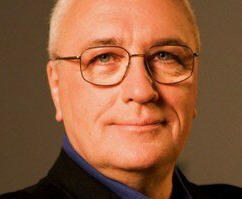It’s a challenge to keep one’s critical faculties alive in the face of the powerful dose of sound, image and celebrity that the Rob Marshall film, Chicago(2002), delivers – especially given a media campaign (and a box-office gross) that keep insisting on its greatness.
Marshall’s first film bears the indelible print of its Broadway originator, Bob Fosse, who was the creative force behind some of the most sensationally effective films of the 1970s and ’80s: Cabaret (1972), All That Jazz (1979) and Star 80 (1983) – each of which he directed and wrote. His early death (at age 60) robbed us of a sizable talent, too few of whose efforts (he was primarily a stage director) were immortalized on celluloid.
Fosse began as a Broadway song and dance man, and the theme of performance – as a route to feeling truly alive – dominates his work: showing off was an antidote to despair about his own mortality in All That Jazz. But his films were also hallmarks of the changing times in which they were made: the martyr’s lonely campaign against hypocrisy in Lenny (1974), the sour commercialization of the sexual revolution in Star 80, fear of the perpetual threat of fascism in Cabaret. Fosse was superb in his control and direction of performers; his eye for theatrical effect was unerring; he combined a humanistic streak with the impulses of a shockmeister.
Most of his projects began as theatrical productions, and Chicago – emerging 15 years after Fosse’s untimely death in 1987 – parallels Cabaret in its fascination with performance and its ambitions to social relevance. It’s with the latter that the film stumbles, primarily because of its revolting cynicism.
In its notorious night club scenes, Cabaret (Fosse’s strongest film) had its feet ankle-deep in the traditions of Bertolt Brecht, the Marxist playwright who got his start in Weimar Germany during the ‘Twenties. Brecht’s troupe of working class actors put on plays in warehouse theaters – plays for workers that explained political repression, propaganda, the rising fascist tide, the importance of class-based politics. They exposed the raw hypocrisy and cheap “humanist” masquerade of liberal bourgeois class rule. Brecht – and Cabaret – were cynical to the core.
Coming away from Chicago, one cold night, I wondered why I wouldn’t allow this film – and its participants – the same kind of bitter cynicism that was permissible with the earlier works.
Then I realized that the problem was the teller, as much as the tale.
A Brechtian expose of the ugliness of pre-Nazi social relations, from a Marxist proletarian troupe in Weimar who wanted to change the world (or even, in Cabaret’s case, from a Hollywood movie that didn’t) is one thing; it is quite another to get the same pessimistic message from a multimillion dollar Miramax/Disney corporate production about America in the ‘Twenties, starring people who’ve benefited immensely from the system they are supposedly critiquing. It boasts a cast of some of Hollywood’s most talented and attractive performers: Richard Gere, Rene Zellwegger, Catherine Zeta-Jones, Queen Latifah and everyone’s current favorite Everyman, John C. Reilly. Do they really have so much to be cynical about?
Chicago is sung, danced and photographed with textbook gusto that fails to obscure its lack of originality, meager plot, witless songs and blatant celebration of human corruption. The film is a grotesque parody of female rivalry in which its protagonists are surrounded by a familiar roster of exploiters and victims.
Critics rave, but Chicago is impressive only if you’ve never seen the truly great classic musicals of Broadway and the American cinema. If the word “great” can be applied to Chicago’s lyrics, what word would be reserved for those of My Fair Lady(1964), Camelot(1967) or West Side Story(1961)? Chicago’s banal lyrics do nothing but baldly state the motives of the film’s unsavory characters. You may object to My Fair Lady on other grounds, but poetically, Chicago couldn’t shine its shoes.
And give me the cheap liberal sentiments of West Side Story, any day. In the present context, Chicago seems like a missive from Bush’s America: a reaffirmation of Society-As-Jungle. It’s a thoroughly Philistine production; its popularity is a barometer of a loss of purpose in the popular arts – and a profound lowering of audience expectations. I am appalled that people aren’t offended – not only by the amorality at the core of the film, but – by its blatant role as corporate propaganda.
Everyone in Chicago is thoroughly corrupt. Watching it is like having one’s face rubbed in excrement. Its claim to be “satire” is specious, an example of the “doublethink” that intellectual apologists make for crass pop-culture artifacts. Even though it’s “true” in its view of corruption, it’s fabricated by the very authors of that corruption (the rich and the corporations), the same people who have attacked the public realm – democratic institutions, the legal system, education, health and civil rights – so viciously and consistently, since the ‘Sixties, and with a renewed ferocity under Bush and now Obama.
Coming from them, Chicago spells out the ground rules for The New World Order. It nudge-nudges and wink-winks at us, inviting our complicity and our compliance: after all, this is human nature we’re being shown! I don’t subscribe to its vision on any level.


Sigh…